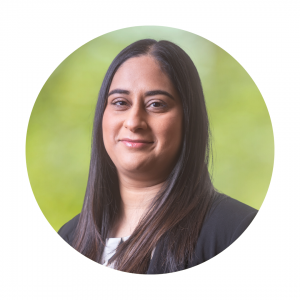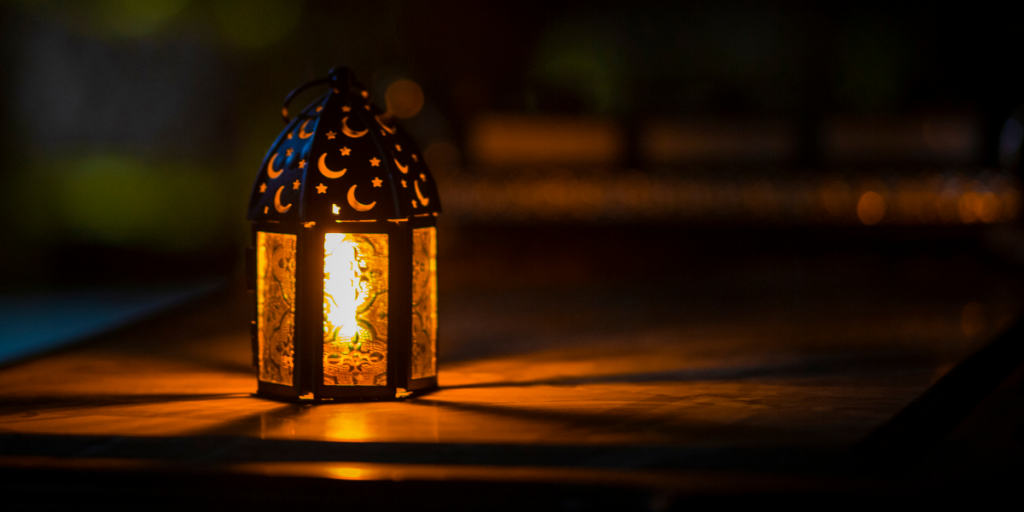About Ramadan
 Ramadan is the holiest month in the Islamic calendar, and fasting during the month is one of the five pillars of Islam that shape the lives of Muslims.
Ramadan is the holiest month in the Islamic calendar, and fasting during the month is one of the five pillars of Islam that shape the lives of Muslims.
Fasting helps us to remember and have compassion for those less fortunate than us and the struggles that they face.
There are some exemptions to fasting during Ramadan, such as children and people who are elderly, pregnant, or unwell.
Fasting rhythm of Ramadan
We start the fast by waking up before dawn (around 5.00am!) to have a light meal called Suhoor. We then don’t eat or drink anything (not even water) until sunset at about 8.00pm, when we break our fast with a meal called Iftar.
Muslims may be more tired during the day, as we get used to waking up in the middle of the night to eat.
For me personally, the sleep element is tougher than the fasting itself! I’m going to try to change my work routine where possible. During the school holidays, when I don’t have the school run to do in the morning, I’ll have a later start to get some sleep.
More than a fast
 Ramadan is more than just fasting, it’s also the time of the year where Muslims try to put all worldly matters aside and focus on their connection with God. It’s a bit like the start of a new year, when we set ourselves goals and targets as part of our new year resolutions.
Ramadan is more than just fasting, it’s also the time of the year where Muslims try to put all worldly matters aside and focus on their connection with God. It’s a bit like the start of a new year, when we set ourselves goals and targets as part of our new year resolutions.
Charitable giving is increased during the month, and the amount of worship tends to ramp up in the last 10 days of Ramadan, as these are the days it is believed that the Qu’ran (the holy book of Islam) was revealed. I’ve booked in annual leave where possible during those days, to give me time to recite the Qu’ran and contemplate its meaning.
The end of Ramadan is marked by a big celebration called Eid ul-Fitr (the Festival of the Breaking of the Fast), including a big daytime meal. A common greeting on the day is Eid Mubarak, which is a way of wishing someone a ‘Happy Eid’, and it’s marked by families and friends getting together for Eid parties.
Supporting Muslims during Ramadan
 The way we use language is key to creating an inclusive environment. One way to support Muslim colleagues, service users, and friends during Ramadan is by being thoughtful about the way we talk about fasting.
The way we use language is key to creating an inclusive environment. One way to support Muslim colleagues, service users, and friends during Ramadan is by being thoughtful about the way we talk about fasting.
Many Muslims will be happy to tell you about Ramadan and what it means to them, so it’s absolutely okay to ask, but just be aware that some people may be more private. Also bear in mind that not all Muslims fast during Ramadan, and they may prefer to keep their reasons to themselves.
Fasting during the day can be challenging, so I understand that it can be tempting to say you feel sorry for Muslims who are fasting, but Ramadan is a sacred month for us, and we feel proud to take part in it.
Comments like, ‘Poor you, having to fast!’ (even when made in sympathy) can leave us feeling disheartened, as we don’t want people to feel badly about our faith, which is so important to us. Instead, taking a stance of encouragement would be really helpful and inclusive of fasting colleagues and service users!
Here is a useful infographic with some more examples about how you can be inclusive of fasting Muslims during Ramadan:

Find out more
The Muslim Council of Britain has produced a useful guide about Ramadan, which includes advice about how to care for your mental health and wellbeing while fasting.
I’d like to wish any fellow Muslims Ramadan Mubarak (which means ‘Blessed Ramadan’)!
